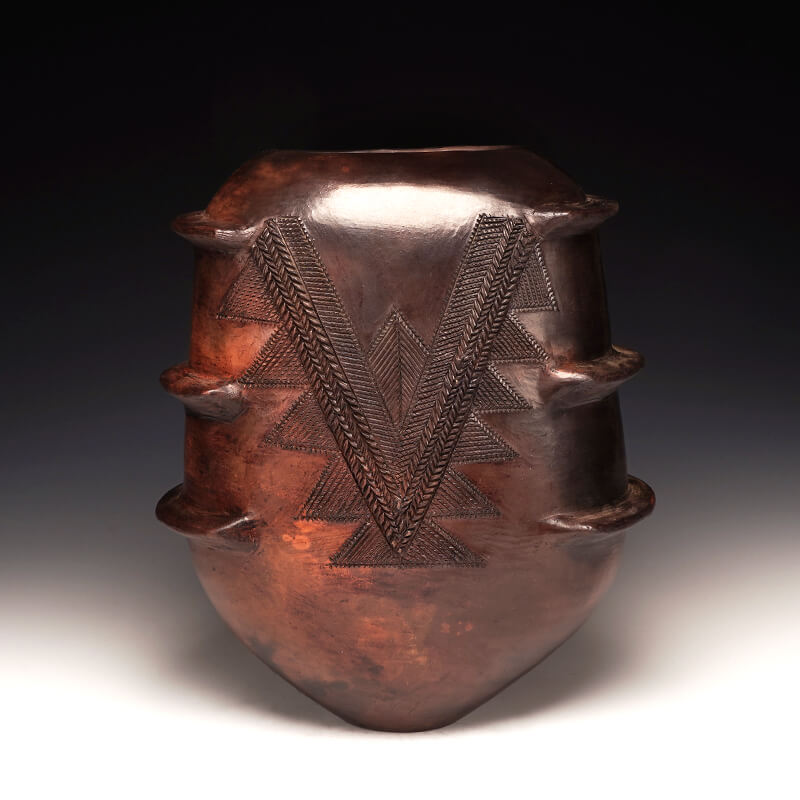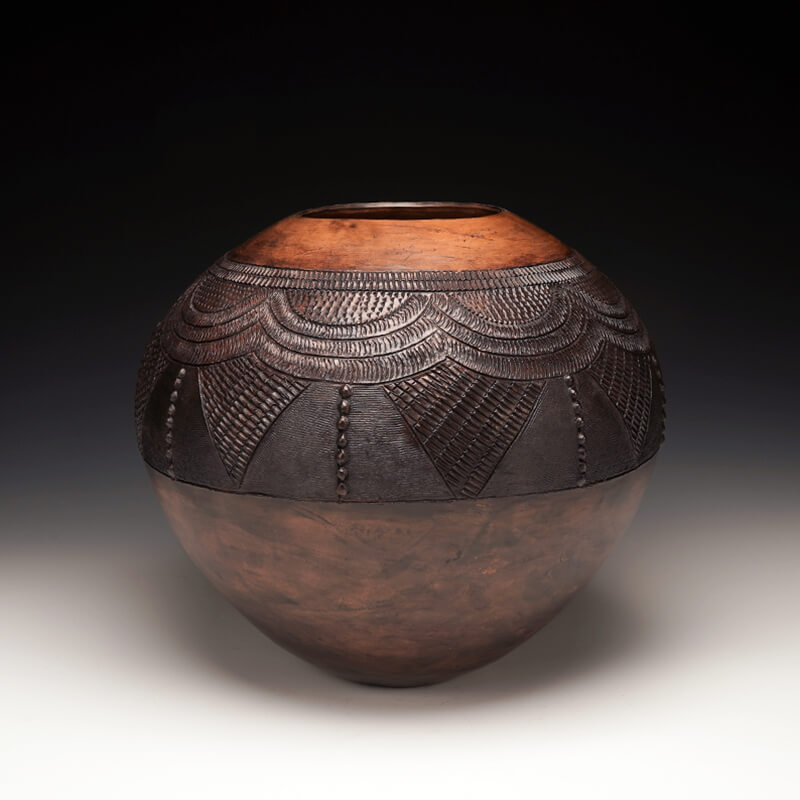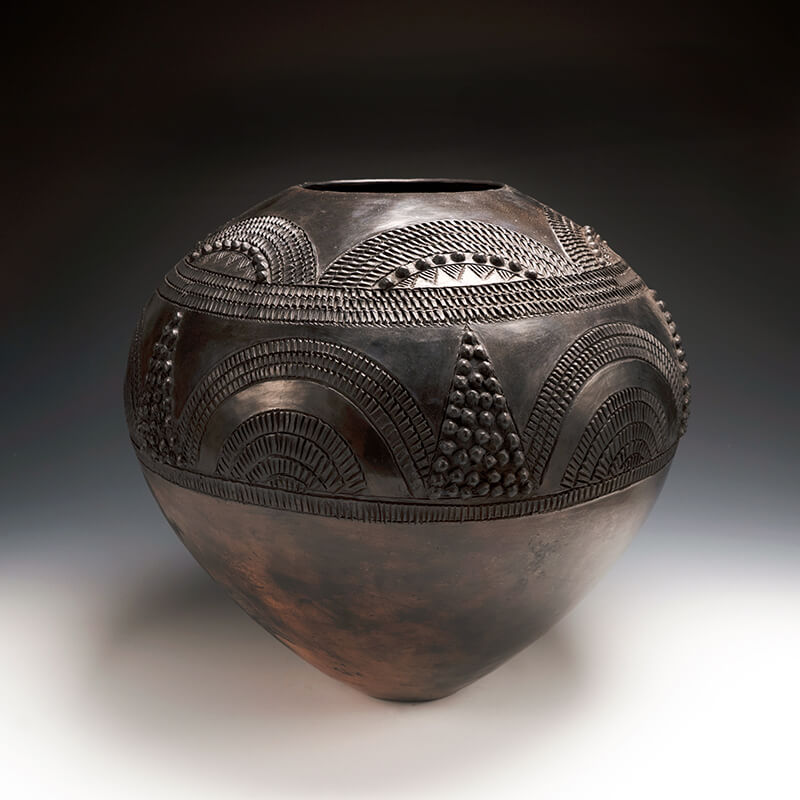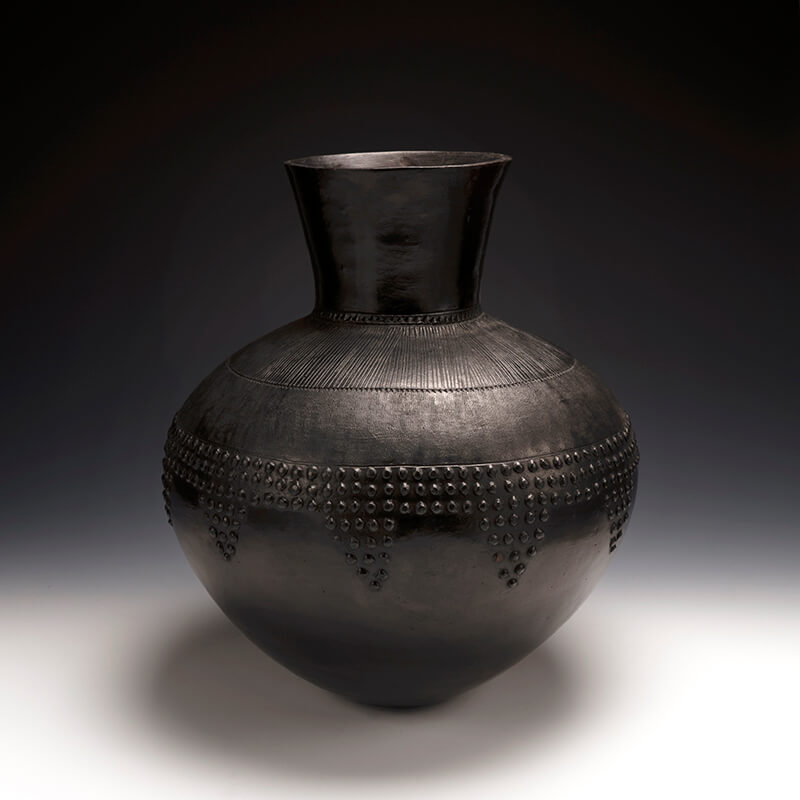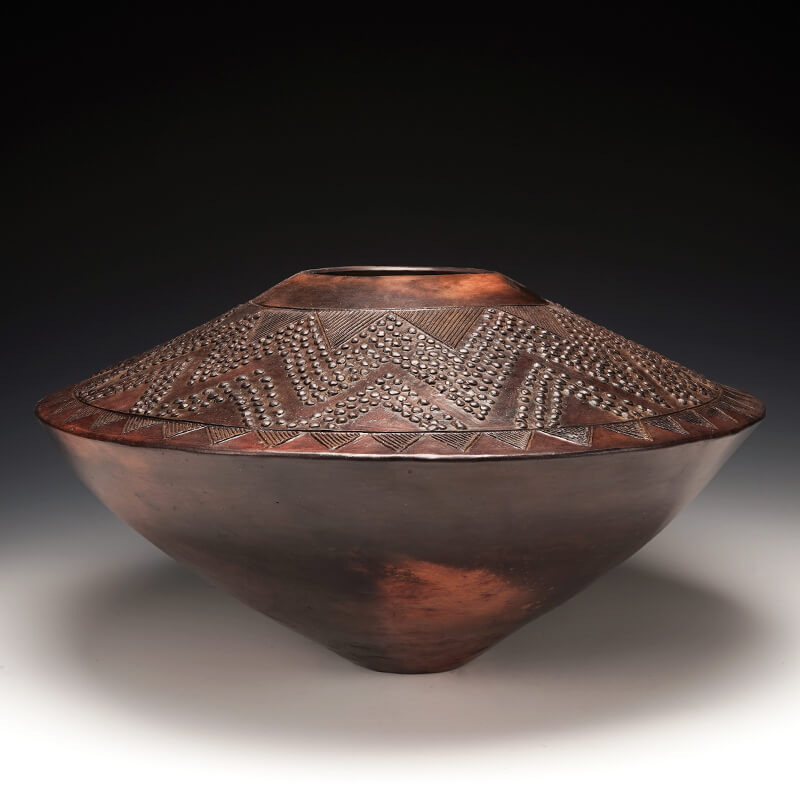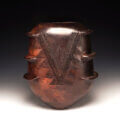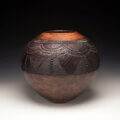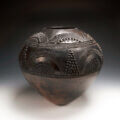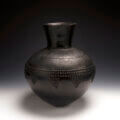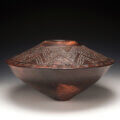
Jabu Nala was born in 1969 in Oyaya, KwaZulu Natal, South Africa. She is a potter, creating traditional clay Zulu Beer Pots. Jabu is the Daughter of Nesta Nala, who has a worldwide reputation for her classical forms and beer pots. Her mother taught her, and Jabu continues in Nesta’s footsteps, using the same techniques her mother and grandmother used to make her pots. A story in her family goes that her grandmother dug enough clay before she died to insure that the next generation would have plenty to provide for themselves. This story may be apocryphal, but it illustrates the centricity of clay in the economic lives of the Nala family
Jabu makes use of two types of clay (red and grey) which are hand-dug from two areas near her home. The clay undergoes the traditional processes to produce the unique pots.She is a master of the uphiso form for the flattened slope towards the mouth of izinkamba. Jabu has an established an excellent reputation for herself in the South African ceramic art world. She is recognized for her larger vessels, her banded design work and her improvisations using the inkanyezi, or star design.
The clay is from Oyaya. The pots are all formed from coils – or sausages, as she calls them – carefully smoothed together and burnished with a river stone until shiny. Some designs are incised; strips or knobs of clay are added to others. Her tools are minimal. All are common household objects: spoons, stones, the metal stay from an umbrella.
The pots are fired as they have been for generations. If they’re not quite dry, Jabu dries them completely by putting hot coals in them. They are then surrounded with wood and fired in the open without a kiln. There’s nothing to tell her the temperature. She knows by their look and sound when they’re done. Many pots are purely utilitarian. If they’re for cooking or brewing beer, they are left brown. If the pots are used in ceremonies, they’re put in a second, smoky , fire to blacken them for the ancestors who prefer the dark.
Jabu’s mother, Nesta Nala, supported her family with pottery, first making pots for the local market, just as her mother Siphiwe had. Beer pots were at the center of Siphiwe’s production, large ones for brewing beer; smaller ones for sharing beer during all important Zulu rituals. Births, deaths and marriages are all celebrated by sharing beer. Nesta, however, took her pottery-making a step further. Her pieces were more graceful and highly refined. Her work found its way into art galleries in the cities. She became widely known, recognized by her own South African government and the Smithsonian Institute in the United States.
Jabu has extended her repertoire from pots for traditional uses to new shapes that use traditional forms as their starting point. She’s now pushing the limits farther by creating animal sculptures. They are the animals of the countryside she grew up in – cows, sheep, goats and ducks – executed with humor and grace.
Given the sales revenue in South Africa, Jabu travels to the United States, UK and Europe to sell and showcase her work through solo and commercial plaforms. One of her major exhibition participation includes the International Folk Art Market in Santa Fe, which takes place in July of each year, and the Cultural Survival Bazaars in the Boston area in July and December.

